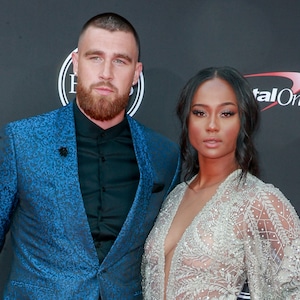Shop At Haya: Your Ultimate Shopping Guide
Discover the best shopping tips, trends, and deals for a smarter buying experience.
Celebrity Endorsements Gone Wrong: A Whole New Level of Cringe
Discover the jaw-dropping moments when celebrity endorsements went hilariously wrong! Get ready for a cringeworthy ride of epic fails!
When Celebrity Endorsements Backfire: The Most Cringe-Worthy Moments
Celebrity endorsements are often seen as golden opportunities for brands to enhance their image and expand their reach. However, when these endorsements go wrong, the results can be nothing short of cringe-worthy. One notable example is Pepsi's 2017 ad featuring Kendall Jenner, which faced immense backlash for trivializing social justice movements. The ad intended to convey a message of unity but instead came across as tone-deaf, leading to its swift cancellation. Such missteps serve as reminders that celebrity endorsements require a delicate balance between authenticity and brand messaging.
Another infamous case illustrating the pitfalls of celebrity endorsements is Fyre Festival, which was marketed with the help of influencers like Kendall Jenner and . The luxury music festival was advertised as a VIP experience set in paradise, but when attendees arrived, they were met with substandard accommodations and a lack of organization. This catastrophic failure not only tarnished the festival's reputation but also left the endorsing celebrities in a precarious position, questioning their judgment and the impact of their promotional efforts. These cringe-worthy moments underscore the importance of due diligence in choosing the right partnerships.

Are Celebrity Endorsements Worth the Risk? A Deep Dive into Failures
When it comes to celebrity endorsements, brands often weigh the potential benefits against the inherent risks. While many companies have successfully skyrocketed their visibility and credibility through high-profile partnerships, the reality is that not every endeavor pays off. Analyzing several notable failures can provide valuable insights into why some endorsements go awry. For instance, the infamous case of Pepsi and Kendall Jenner highlighted the pitfalls of misjudging the audience's sentiments, leading to widespread backlash rather than the intended brand lift.
Moreover, the fallout from failed endorsements can extend far beyond a single campaign, affecting brand image and consumer trust. The backlash faced by Reebok after associating with the controversial figure of Allen Iverson showcases how poorly chosen endorsements can tarnish a company's reputation. Brands must also consider the potential for negative press if their partnered celebrities engage in scandalous behavior. In conclusion, while celebrity endorsements have the potential to elevate a brand, the risks associated with them are profound and must be carefully navigated to avoid devastating failures.
Top 10 Celebrity Endorsements That Went Hilariously Wrong
Celebrity endorsements are often a guaranteed way to boost a brand's visibility, but sometimes, they can backfire spectacularly. One of the most infamous examples is Pepsi's ad featuring Kendall Jenner, which aimed to capture the spirit of social movements. Instead, it faced immense backlash for trivializing serious issues, leading to a swift pull of the advertisement amidst widespread criticism. Such missteps highlight that not all celebrity endorsements resonate as intended, making for some of the most entertaining and cringe-worthy moments in advertising history.
Another prime example is the much-maligned McDonald's campaign featuring Michael Jordan and the obscure reference to his film Space Jam. The humorous intent behind the ads ended up falling flat, leading to confusion rather than excitement among fans. Such botched attempts at capturing a celebrity's essence not only jeopardize brand integrity but also serve as a reminder that creativity without context can lead to hilarity of the wrong kind. These blunders show that while celebrity endorsements can elevate brands, they can also plunge them into comical chaos.